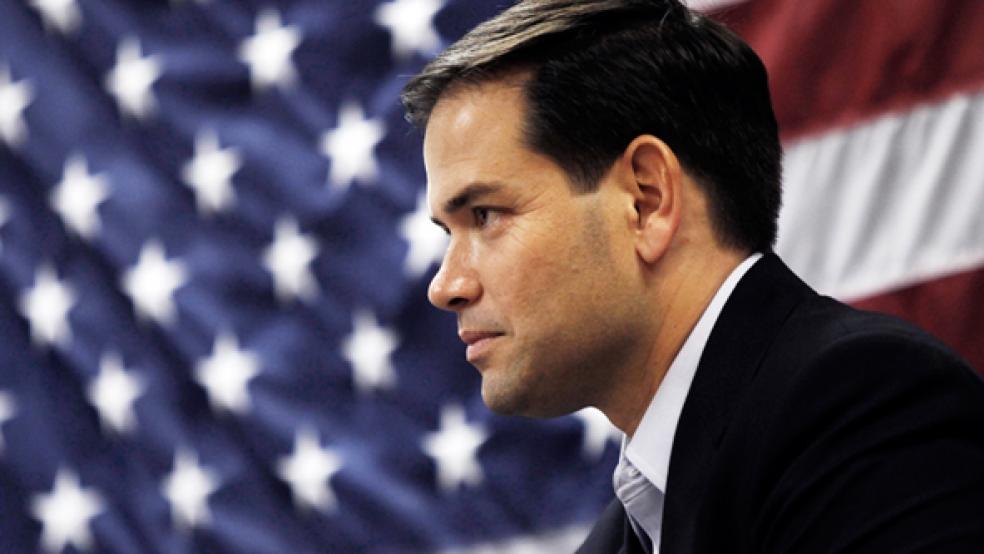In remarks at the National Press Club on Tuesday, Sen. Marco Rubio (R-FL) offered several proposals for increasing Americans’ financial security in retirement including incentives to get them to work past retirement age.
“[T]he retirement system we have in place does not line up with the needs and realities of our post-industrial economy,” Rubio said. “In this new century, most people will live longer and voluntarily work longer. And many people will change jobs countless times, often in business for themselves or working for companies that do not offer retirement savings plans or pensions.”
Related: The 9 Best States for Retirement
Rubio proposed two different avenues that would work together to increase the number of Americans who continue to work into their late 60s and 70s, including eliminating provisions in the tax code that create disincentives to continue working, and by raising the federal retirement age by an unspecified amount above the current level of 67.
On the tax side, Rubio proposed exempting all workers who have reached retirement age from the 12.4 percent Social Security payroll tax.
“These seniors have already paid their fair share, and we shouldn’t punish them for choosing to keep working rather than immediately cashing in,” he said.
He also proposed doing away with the Retirement Earnings Test, which is applied to the earnings of people who choose to take early retirement benefits. The test reduces their Social Security payment by 50 cents for every dollar they earn over $15,000 annually. (They are compensated with higher payments after reaching full retirement age.)
Related: What ’60 Minutes’ Got Right and Wrong About Aging
“This essentially equates to a 50 percent tax on benefits on top of all other taxes being paid,” Rubio said. “The result is that Americans often work right up until the age of 62, and then enter retirement before they start incurring this penalty.”
Rubio said he advocates eliminating the test entirely, citing “one economist” who estimates that it would raise the employment rate of early retirees by 5.3 percent.
In addition to creating incentives to get people to work later in life, Rubio also champions a proposal that would essentially force them to raise the retirement age.
“If you turned 21 in 1940, your chances of living to retirement age were only about 55 to 60 percent. But if you turned 21 today, your chances of reaching retirement age are around 80 percent,” Rubio said. This means we have a “record number” of Social Security beneficiaries, Rubio said, who are living an average five to ten years longer than when the program was instituted.
Related: The 12 Worst States for Retirement
“But in the past 80 years, Congress has only increased the retirement age by two years, from 65 to 67. This simply won’t be enough in the long run,” he said. “The answer is to gradually increase the retirement age for future retirees to account for the rise in life expectancy. And if we act soon, we can do this without changing the retirement age for people who are currently over the age of 55.”
Rubio also proposed making it easier for people to save for retirement by giving the individuals not covered by an employer-sponsored 401(k) program access to the Thrift Savings Plan, a similar program made available to members of Congress and other federal employees.
Additionally, he endorsed turning Medicare into a “premium support” program under which seniors would be given a voucher that they could spend on health insurance, either by buying into the current Medicare program, or purchasing a qualifying private plan.
This article was updated at 11 a.m. on May 14. 2014.
Top Reads from The Fiscal Times:




